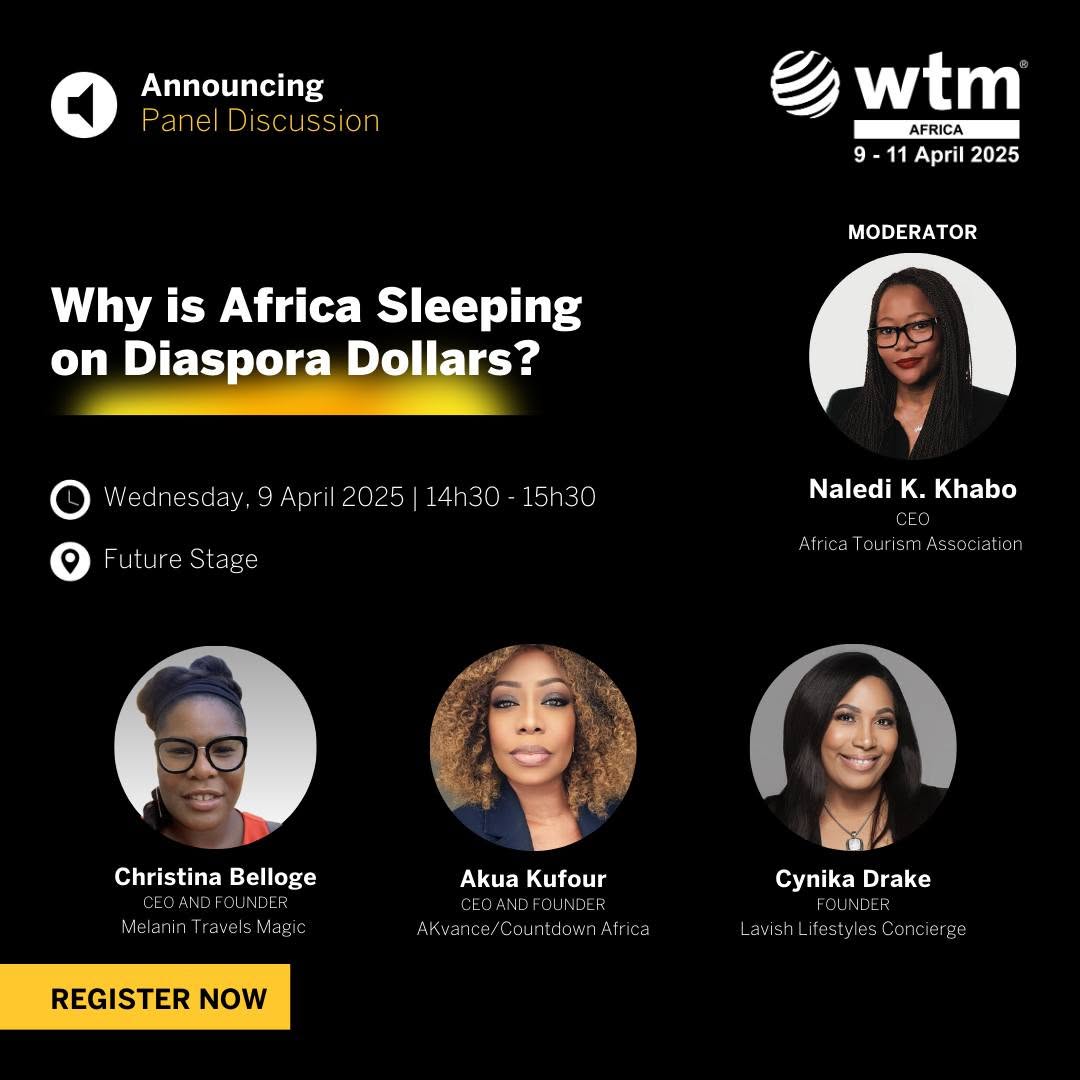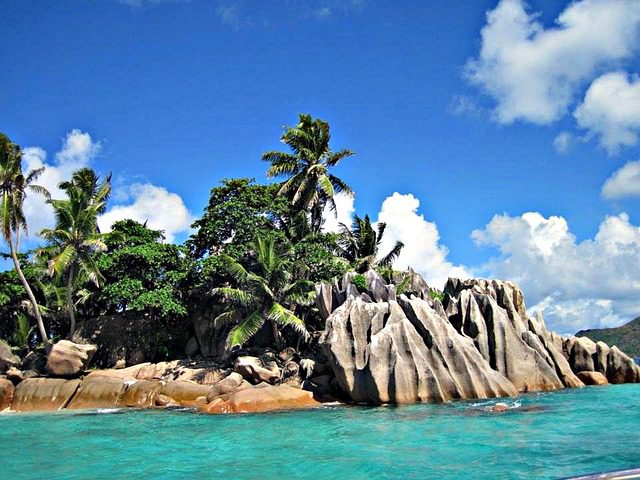At WTM Africa 2025, a powerful and unapologetic panel session titled “Why is Africa Sleeping on Diaspora Dollars?” lit up the conference floor with urgency, insight, and strategy. Aimed at both European travel agents and African travel operators, the session cut straight to the point: Africa is sitting on a gold mine—the global Black diaspora—yet failing to fully engage and cater to this affluent, experience-driven market.
From London to Lagos, Atlanta to Accra, members of the diaspora are eager to return to the continent—not just for leisure, but for connection, culture, and investment. So why is the red carpet still missing?
Here’s how the conversation unfolded—and what every stakeholder in the tourism industry needs to hear.
The Diaspora: A Luxury Market Hiding in Plain Sight
The session began with a bold thesis: The Black diaspora, particularly in the US and Europe, is a high-spending, under-targeted market in African tourism. Representing billions in potential revenue, this group craves authentic, luxury, and culturally enriching experiences—and they’re willing to pay for it.
Yet too often, African destinations and operators overlook them in favor of more “traditional” tourists.
Christina Belloge: “The Diaspora Wants to Come Home—Make it Easy”
Christina Belloge, Founder of Melanin Travels Magic, brought hard-earned insight from her experience connecting Afro-Caribbean travelers to Black destinations.
“Diaspora travelers aren’t just coming for beach resorts. They’re coming to reconnect with history, culture, and community.”
She highlighted that over 200 of her clients—mostly based in the UK, US, and Europe—have booked immersive, Afrocentric trips through her agency. But there’s still friction.
“Too many African destinations are difficult to book, hard to navigate online, and offer limited luxury options that speak to our taste and identity. If we want to scale, Africa must modernize the booking experience and target us intentionally.”
Her call to action? Invest in visibility, luxury experiences, and digital ease.
Naledi Khabo: “It’s Not Just Travel—It’s Economic Diplomacy”
As CEO of the Africa Tourism Association, Naledi K. Khabo took a broader, structural view. She reminded the room that tourism is not just leisure—it’s policy, identity, and economics.
“The diaspora is not a niche market. It’s a global economic force. Engaging them is not just smart—it’s necessary.”
Khabo emphasized the importance of government engagement, cross-sector collaboration, and policy alignment to create truly welcoming, scalable tourism strategies.
She also discussed “The Collective,” a global Black media network she co-founded, which is helping shape new narratives around Africa and its place in the global tourism scene.
“We need to stop asking for a seat at the table and start building our own.”
Akua Kufuor: “Brand Africa Better. Period.”
Marketing maven and founder of Countdown Africa, Akua Kufuor pulled no punches when talking about the branding problem facing Africa.
“Africa has a perception issue. The images being sold to the world are outdated or one-dimensional.”
Her solution? A bold, continent-wide rebranding strategy, grounded in storytelling, innovation, and partnerships. Drawing on her experience with global giants like M&M’s and Unilever, she’s now channeling that branding power into Ghana’s booming tourism scene—especially around culturally resonant events like the Ghana New Year’s Eve celebrations.
“The diaspora wants to be proud of Africa. Let’s give them something to brag about.”
Cynika Drake: “Luxury is Not a Dirty Word”
Renowned travel advisor Cynika Drake brought the perspective of the high-end traveler. With clients across the US and Europe seeking exclusive, bucket-list experiences on the continent, she stressed that African operators need to raise their game.
“Luxury is not just about price—it’s about service, customization, and story.”
She explained that many African destinations have the raw assets—beautiful landscapes, rich cultures, heritage sites—but lack the infrastructure, logistics, and hospitality finesse to deliver consistent luxury travel.
“Give us well-trained guides, reliable transport, Wi-Fi in the bush, and yes—boutique touches. That’s how we retain diaspora clients.”
Key Takeaways for European and African Stakeholders
For European Travel Agents:
- The Black diaspora is emotionally connected to Africa—tap into that with curated, purpose-driven itineraries.
- Partnering with African operators offering authentic and elevated experiences—culture, heritage, and wellness are key.
- Don’t assume Africa is “budget travel” for everyone. There’s demand for luxury and high-end experiences.
For African Travel Operators:
- Market to the diaspora intentionally—speak their language, show representation, and simplify access.
- Invest in service quality, hospitality training, and digital platforms.
- Collaborate with diaspora-owned agencies and influencers to build trust and visibility.
Final Word: Don’t Sleep, Strategize
WTM Africa’s discussion was clear: The diaspora isn’t a favor to be asked—it’s a force to be welcomed. From luxury travelers to investors, they’re coming to Africa ready to spend, connect, and celebrate.
But it’s up to African operators, policymakers, and global partners to wake up and roll out the red carpet.
Because this isn’t just tourism—it’s a homecoming.







